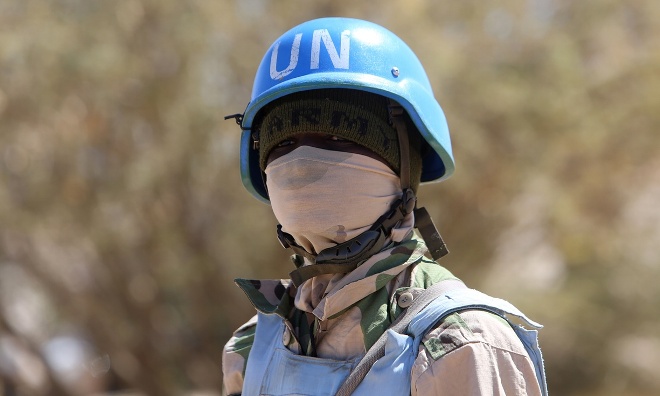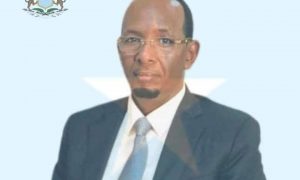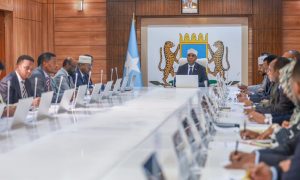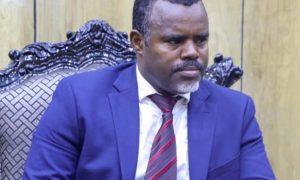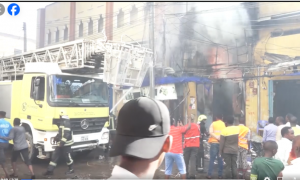
United Nations secretary general urges countries to investigate and prosecute soldiers accused of sexual violence.
The Guardian | September 17, 2015 | The UN secretary general, Ban Ki-Moon, has called on countries whose soldiers are responsible for rape and sexual exploitation on peacekeeping missions to stop covering for their crimes and put them on trial.
Ban said sexual violence by peacekeepers was “a number one priority” after a series of severely embarrassing revelations of rape and exploitation, often involving children.
UN officials acknowledge that the organisation has failed sufficiently to address the issue, in part because of the threat by some countries to pull their peacekeepers out of UN operations if they are publicly named and shamed.
But Ban said the UN was limited in its response because governments refused to give it the authority to do more than order peacekeepers responsible for sexual abuse to return home. He called on member countries to show “greater institutional responsibility” by investigating and prosecuting their troops.
“I have been talking to the leaders of those countries concerned to make sure that they’ll be punished in accordance with national laws,” he told the Guardian in an interview. “We are very seriously discussing how to handle this matter. There is a growing awareness among the member states that they should be more practical and cooperate fully with the [UN] secretariat.”
In August, Ban demanded the resignation of the head of UN peacekeeping operations in the Central African Republic (CAR), Babacar Gaye, over his failure to deal with “serious allegations” about the conduct of blue helmet troops. At the time, Ban said he was “anguished, angered and ashamed” by a series of incidents, including a report by Amnesty International on the rape of a 12-year-old girl and the killing of a 16-year-old boy by peacekeepers.
“Unfortunately we have been experiencing recurrent crimes happening here and there, most recently in Central African Republic,” said Ban. “That’s something we expect the member states to fully cooperate [with]. At this time, the United Nations secretariat does not have the mandate to take any punitive measures. We cannot put them in the justice and accountability process. It is member states.”
Ban did not name individual countries but UN officials say that while some, such as France, Morocco and South Africa, have prosecuted troops serving under the UN flag, others, such as Pakistan and the Democratic Republic of the Congo, frequently take no action. UN officials privately accuse some governments of using the organisation to shield their armies from scrutiny and to take the brunt of the public criticism.
“If countries won’t prosecute their own troops, they have virtual impunity to commit all kinds of crimes,” said one senior UN source.
The UN has begun to suspend payments for peacekeeping troops to countries that refuse to act on credible allegations of abuse, but it has declined to name them. Some countries, notably Nigeria, Rwanda and India, have threatened to pull their troops out of peacekeeping if they are exposed publicly on abuses, sexual and otherwise.
The UN would not name the nationality of the peacekeepers who were accused of sexually abusing street children in the CAR in June. Last month, it again refused to make public which contingent was being investigated for allegations of raping women in the CAR, including a minor. However, it was revealed that the soldiers were from theDRC.
A UN report into the killing of civilians by a UN police unit in Mali made no mention of the fact that Rwandan forces were responsible. A UN source said the Rwandan government had threatened to withdraw peacekeepers from Darfur if it were named, but it did quietly withdraw the police unit and promise to hold the officers responsible to account.
Sexual abuse by peacekeepers has been a consistent problem – from Sarajevo and Liberia to Haiti and the CAR. Critics such as Amnesty International say the UN has failed to address the problem sufficiently for more than two decades.
“It’s ubiquitous,” said Richard Gowan, until recently research director at the Centre on International Cooperation, a thinktank in New York that works closely with the UN on peacekeeping. “For a lot of the UN guys, they know it’s happened. They know that it’s doing real damage especially in places like Haiti and Liberia where these missions have been for many years.”
The UN’s record of confronting sexual abuse is not good. Yasushi Akashi, the Japanese diplomat who headed the UN’s disarmament mission in Cambodia, infamously responded to evidence that UN staff were frequenting Phnom Penh brothels, many of which had underage prostitutes, by saying: “Boys will be boys.”
At times, the instinct was to cover up. Whistleblowers were sacked or sidelined. Reports were buried. Investigations were opened but dropped because of lack of resources.
In 2005, the then secretary general, Kofi Annan, called sexual exploitation “an ugly stain” on the UN’s reputation, after an investigation of the conduct of peacekeepers in the DRC identified some having sex with children in exchange for food.
Another UN report this year said “transactional sex is quite common but underreported in peacekeeping missions”. It noted hundreds of cases, about a third of which involved children. South African peacekeepers based in the DRC have been accused of soliciting sex from refugees as young as 12 in exchange for food and money.
More than 200 Haitian women told investigators of having had “transactional sex” for cash or goods. “For rural women, hunger, lack of shelter, babycare items, medication and household items were frequently cited as the ‘triggering need’,” the report said.
Peacekeepers in the DRC have also fathered children they have failed to take responsibility for after leaving the country. “It’s very damaging,” said Jack Christofides, a UN official on a break as head of UN peacekeeping in central Africa. “I can tell you that all the indicators, all the number of cases are going in the right direction, which is down. But you and I know that any case can destroy this effort in a flash.”
The 2005 report recommended that courts martial be held in the country where the crimes are committed but it was rejected by the member governments. Christofides would like to see member states give the UN the authority to prosecute soldiers responsible for crimes.
“I don’t know if the member states are going to change this any time soon, where they must give us the authority to discipline their troops. I think it would take something exceptional for us to be given that kind of authority. But many of us believe that unless you can control the entire chain, it’s going to be impossible to rule it out completely, on the part of civilians and on the part of military,” he said.
Some countries have responded to the public criticism. The highest number of allegations of rape and sexual exploitation in the DRC were against South African troops.
“I think South Africa feels the heat now,” said Christofides. “In Congo they did something that I think is going to become standard practice now for all contingencies if we can persuade them. They flew military prosecutors who could investigate on the ground so, if there was an allegation, they could respond quickly. That had a meaningful impact because once a contingent member is back in his home country, it’s very difficult to investigate. Witnesses disappear.”
.
.
_________________________
_____________________________________________________________________________________
Xafiiska Wararka Qaranimo Online | Mogadishu, Somalia
_____________________________________________________________________________________Advertisement
_____________________________________________________________________________________


